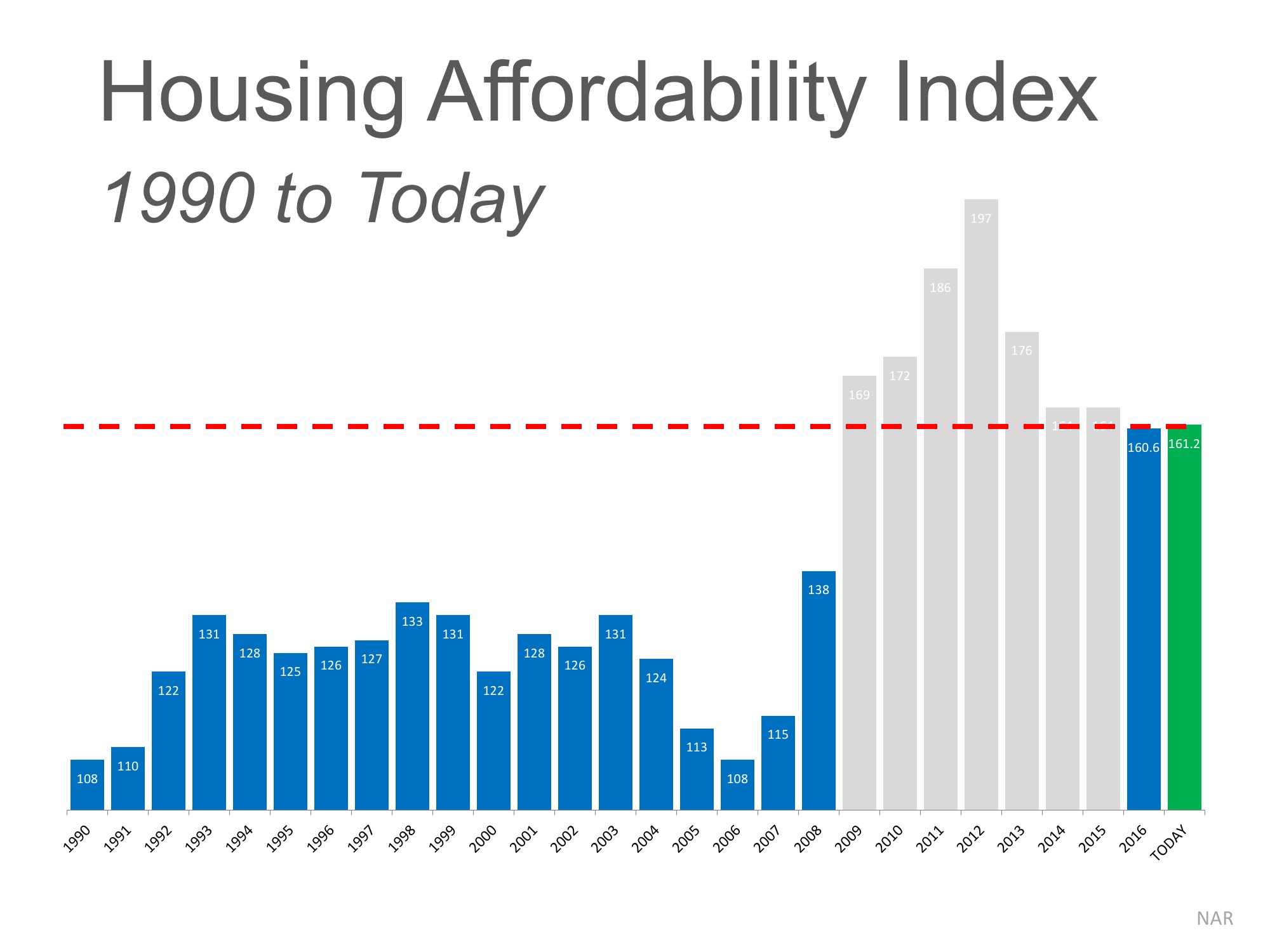The ‘REAL’ News about Housing Affordability
![20170406-Share-STM[1] Keeping Current Matters](https://brookhampton.com/wp-content/uploads/blog-post-images/20170406-Share-STM1.jpg)
Some industry experts are claiming that the housing market may be headed for a slowdown as we proceed through 2017, based on rising home prices and a potential jump in mortgage interest rates. One of the data points they use is the Housing Affordability Index, as reported by the National Association of Realtors (NAR).
Here is how NAR defines the index:
“The Housing Affordability Index measures whether or not a typical family earns enough income to qualify for a mortgage loan on a typical home at the national level based on the most recent price and income data.”
Basically, a value of 100 means a family earning the median income earns enough to qualify for a mortgage on a median-priced home, based on the price and mortgage interest rates at the time. Anything above 100 means the family has more than enough to qualify.
The higher the index, the easier it is to afford a home.
Why the concern?
The index has been declining over the last several years as home values increased. Some are concerned that too many buyers could be priced out of the market.
But, wait a minute…
Though the index skyrocketed from 2009 through 2013, we must realize that during that time, the housing crisis left the market with an overabundance of distressed properties (foreclosures and short sales). All prices dropped dramatically and distressed properties sold at major discounts. Then, mortgage rates fell like a rock.
The market is recovering, and values are coming back nicely. That has caused the index to fall.
However, let’s remove the crisis years (shaded in gray) and look at the current index as compared to the index from 1990 – 2008:
Though prices and rates appear to be increasing, we must realize that affordability is composed of three ingredients: home prices, interest rates, and income. And, incomes are finally rising.
ATTOM Data Solutions recently released their Q1 2017 U.S. Home Affordability Index. The report explained:
“Stronger wage growth is the silver lining in this report, outpacing home price growth in more than half of the markets for the first time since Q1 2012, when median home prices were still falling nationwide. If that pattern continues, it will help turn the tide in the eroding home affordability trend.”
Bottom Line
Compared to historic norms, it is still a great time to buy from an affordability standpoint.
Helpful Negotiation Tactics for Today’s Housing Market
One thing is true whether you’re a buyer or a seller, and that’s how much your agent can help you throughout the process.
What Every Homeowner Should Know About Their Equity
Understanding how much equity you have is the first step to unlocking what you can afford when you move.
Why the Sandwich Generation Is Buying Multi-Generational Homes
If you’re thinking about buying a multi-generational home, working with a local real estate agent is essential.
The Biggest Mistakes Sellers Are Making Right Now
If you aren’t working with an agent, you may not realize the mistakes you are making. And they may be costing you!
Are Home Prices Going to Come Down?
In the context of today’s housing market, it doesn’t mean home prices are going to fall dramatically. It only means prices are normalizing a bit.
How the Economy Impacts Mortgage Rates
Mortgage rates will continue to be volatile in the months ahead. There are signs the economy is headed in the better direction.
How Affordability and Remote Work Are Changing Where People Live
An experienced local agent can help you find the lifestyle you’re looking for in a home you can afford.
Unlocking Homebuyer Opportunities in 2024
If you’re ready and able to buy, you may find that the second half of 2024 is a bit easier to navigate.
How To Determine if You’re Ready To Buy a Home
While housing market conditions are definitely a factor in your decision, your own personal situation and your finances matter too.
Why Working with a Real Estate Professional Is Crucial Right Now
A real estate expert can carefully walk you through the whole real estate process and advise you on the best ways to achieve success.










